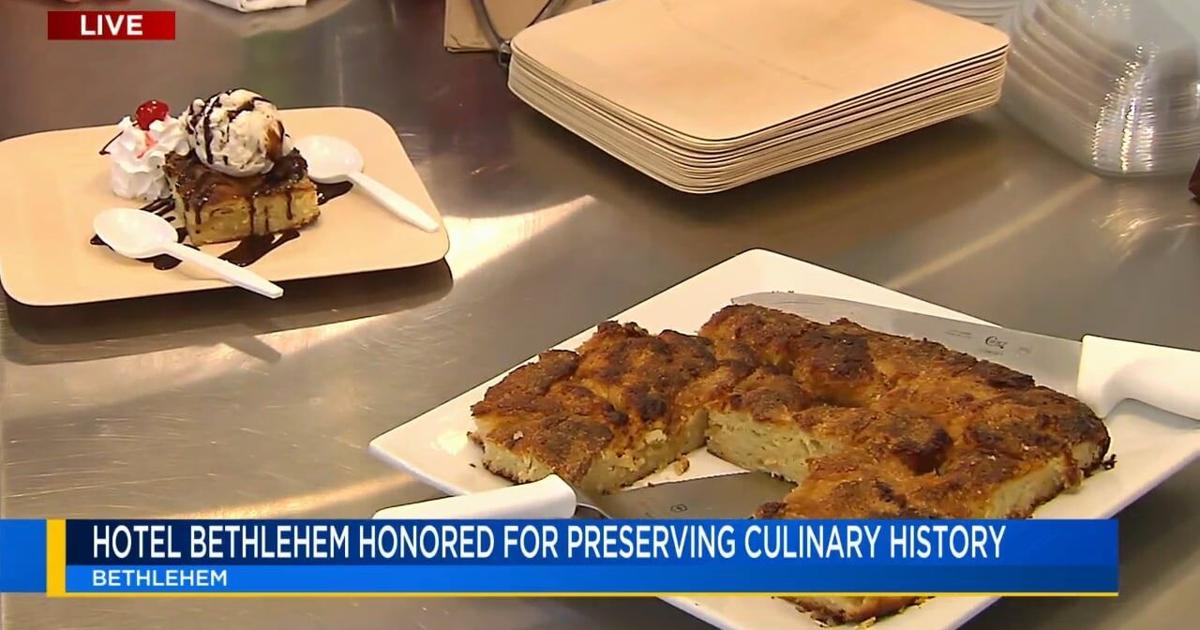BETHLEHEM, Pa. – Historic Hotel Bethlehem is earning national recognition, and we hear it’s pretty sweet.
The hotel’s beloved Moravian Sugar Cake landed itself a spot on the Top 25 Historic Hotels of America Culinary Heritage and Traditions List, according to a news release from Strong Mountain Media.
The list honors historic hotels that “have made important contributions to the culinary heritage and preservation of culinary history in the United States.” Historic Hotel Bethlehem Managing Partner Bruce Haines said.
“It’s truly a sweet honor to be recognized amongst some of the most noteworthy culinary accomplishments in history. Our Moravian Sugar Cake is recognized alongside Boston Cream Pie, Parker House Rolls, and Green Goddess Dressing.”
Bethlehem’s Moravian Sugar Cake is a rich, buttery coffee cake made with potato dough, brown sugar, and butter.
The chef presses indentations into the top of the cake before baking to create pools of butter and sugar, according to the news release. The cake has a soft, slightly chewy texture and a delicate cinnamon scent.
“I absolutely love waking up to the scent of fresh baked Moravian Sugar Cake and so do our guests. For the past twenty years, we’ve served it as a complimentary treat for our overnight guests in our lobby every morning and we sell it by the piece at the Hotel B Ice Cream Parlor,” said Kelly Ronalds, Director of Room Sales and Guest Experience at Historic Hotel Bethlehem.
According to the news release, Moravian Sugar Cake evolved from traditional European yeast breads. Moravian settlers eventually sweetened the recipe and brought it to America.
The Moravians were a Protestant religious group who emigrated to the American colonies in the 1700s to seek religious freedom. Many of them settled in Bethlehem.
Traditionally, the Moravians would serve the cake during a “Love Feast,” a time during worship where parishioners could have a snack to hold them over through the service, according to the news release.
It was also popular for special occasions and church festivals, especially around Easter and Christmas.
“Carrying on this beloved local tradition today, really does give you a sweet taste of history,” Ronalds said.

